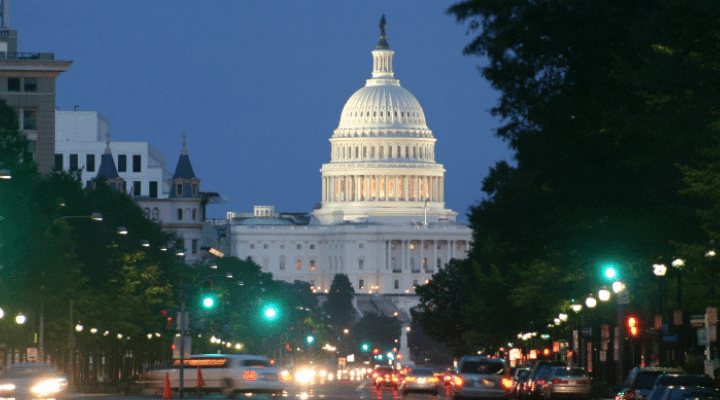As snow dusts your nation’s capital, shutting the government down for a day, the government is rapidly approaching another, more serious shutdown crisis. This one, however, is hard to believe.
Despite the fact that Congress reached a bipartisan deal on topline budget figures in early February, and passed yet another continuing resolution to keep the government funded through Friday while they worked out the details, we’re coming down to the wire once again. Congress simply seems to be incapable of overcoming its dysfunction.
Policy Riders and “Non-earmarks” threaten shutdown
The omnibus spending bill, which will roll all 12 appropriations bills into one — again — is one of the last pieces of legislation that the Congress needs to pass before the midterm elections in November. Consequently, everyone is trying to get their pet issues attached to it. Just for the record, appropriations committee staffers absolutely hate policy riders attached to their bills. (And we all know the professional staff does the real work in the committee).
New York Democratic Sen. Kirsten Gillibrand is upset that her language that would end the practice of paying sexual harassment settlements from the Federal treasury has been stripped. Her New York colleague, Sen. Majority Leader Chuck Schumer, is mad because President Trump (another New Yorker) has threatened to veto the bill if it includes the $900 million Schumer wants for a new highway tunnel under the Hudson River between Manhattan and New Jersey.
And no one is sure what’s going to come of the delicate balance between Trump’s desire to fund construction of a border wall between the U.S. and Mexico, and the long-term deal to protect the so-called “Dreamers,” those illegal aliens brought to the U.S. as children.
To show how convoluted the whole process is, Capitol Hill-centric newspaper The Hill reported Tuesday morning that three of the organizations funded by conservative billionaires Charles and David Koch were urging the president to accept the offer of $25 billion in border wall funding in exchange for a path to citizenship for the 1.8 million Dreamers.
National Security hangs in the balance
These details are supposedly being worked out behind closed doors. But time is running out. The House is supposed to leave town late Thursday for a two-week recess. They hope to pass the bill before then, but that gives the Senate only a day to pass it and avoid a shutdown. Under the Senate’s rules, since things are so accelerated, a single senator could stop the process from continuing, and we’d be right back into shutdown territory again.
The House Armed Services Committee sent a press release Monday with the headline “Omnibus set to Begin to Rebuild Our Military.” Yet here we are, as I write on Tuesday evening, and we’ve seen no omnibus bill. The White House says it won’t be real now until sometime Wednesday morning.
The entire Pentagon is in a holding pattern, waiting for this spending bill. The National Defense Authorization Act set high expectations, but the DOD needs an appropriation that matches the NDAA’s authorizations.
Forget about shutdowns of a day or even a week. Those are inconvenient to federal employees (and more inconvenient to some, though not all contractors), but Congress usually includes a make-up payment for the lost time. The real issue is the ability to begin programs crucial to reversing some of the effects of a decade and a half of war. It’s appropriate that Tuesday was the 15th anniversary of the invasion of Iraq. That war took a toll on readiness across all services—and that problem won’t fix itself.
One would think the occasion would be an opportunity for Congress to see the right path forward. The Service secretaries were on the Hill Tuesday to argue for their Fiscal Year 2019 requests. It’s time Congress passed their appropriation for FY 2018.



